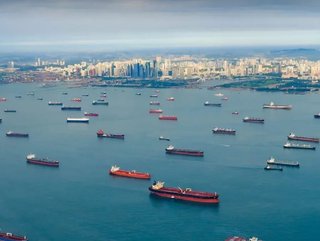Huge US ports investment 'will benefit suppliers' - e2open

Benefits from the recently announced cash injection from the US government’s Department of Transportation’s Maritime Administration (DTMA) into the country’s port infrastructure will trickle down to suppliers, brands and consumers, a leading supply chain analyst says.
The Biden administration is set to sink $653mn into funding 41 domestic port improvement projects, as part of the Port Infrastructure Development Program (PIDP).
It is part of President Biden’s Investing in America agenda, to increase efficiency at coastal seaports, Great Lakes ports, and inland river ports. The investment is part of the largest dedicated funding for ports and waterways in US history – with a total of nearly $17bn being ring-fenced as part of the President’s Bipartisan Infrastructure Law.
Pawan Joshi is Products & Strategy EVP at e2open, the supply chain software platform. He believes the benefits of the funding will go far beyond the ports allotted money.
Benefits of PIPD 'will reach suppliers and consumers'
“It will trickle down to suppliers, brands and ultimately the end consumer,” Joshi says. “The strategy to create a more resilient supply chain could ultimately contribute to prices for goods in the US market.”
With 2.3bn tons of domestic and international trade moving by water every year in the US, the PIDP is designed to have a significant impact.
But Joshi urges patience, saying the improvements will take time to benefit companies and consumers. “These projects are a step in the right direction and everyone looks forward to seeing their impact.
Joshi also expects the ports investment package to help ease another major logistics headache: labour disputes.
“With workforce development support being one of the factors in the project evaluation process, the investments in upgrading these US ports should also lead to improved working conditions, he says.
“Modernised port infrastructure that enables safer, more efficient movement of goods could potentially help decrease strikes and unrest among port workers and create a healthier environment.”
Joshi believes, too, that the investment has come at the right time – even though the freight market is softening in the US, down peak volumes during the pandemic.
He says: “Although it might seem strange this is happening at a time when there is a large decrease in the number of container ships waiting at US ports, the pandemic showed what happens when you underinvest in ports.
“Money being awarded while the pressure is off is actually the best time to ramp-up infrastructure modifications, so you’re not simultaneously having to deal with over-demand.”
- For further insight check out the latest issues of Supply Chain Magazine, Procurement Magazine & Sustainability Magazine
-------
BizClik is a global provider of B2B digital media platforms that cover executive communities for CEOs, CFOs, CMOs, and leaders in sustainability, procurement, supply chain, technology & AI, cyber and FinTech. It also covers industries such as manufacturing, energy and EV. BizClik is based in Norwich, London, Dubai & New York. It offers content creation, advertising and sponsorship solutions, webinars & events.






